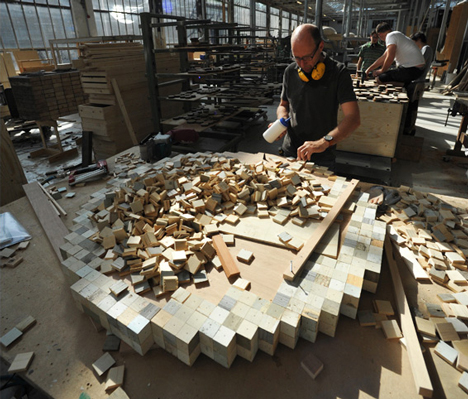Piet Hein Eek uses offcuts from his scrap wood furniture to make Waste Waste 40x40
Dutch designer Piet Hein Eek has created a collection of furniture made by meticulously gluing together tiny squares of wood, which are cut from the waste material of his famous scrap wood furniture.
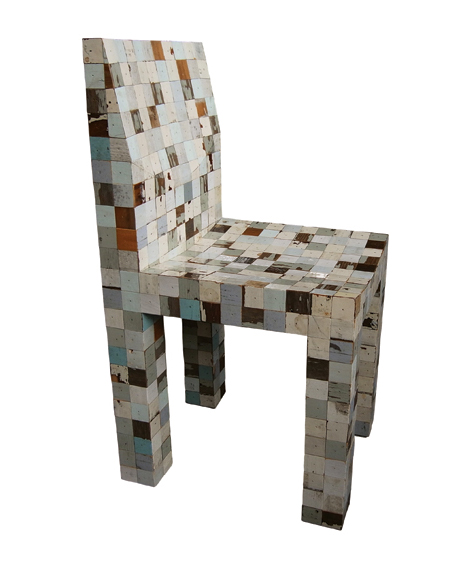
Piet Hein Eek made his name in the 1990s for his Waste furniture assembled by stacking up pieces of scrap material that would otherwise be discarded, and the new Waste Waste 40x40 collection takes the process a step further.
"It's made of the leftovers from the leftovers," he told Dezeen when we visited his studio and workshop complex in a former Eindhoven ceramics factory during Dutch Design Week.
Small pieces of timber that can't be used in the Waste series are cut down into identical squares of 40 by 40 millimetres. These are then glued together to cover the surface of chairs, tables and benches.
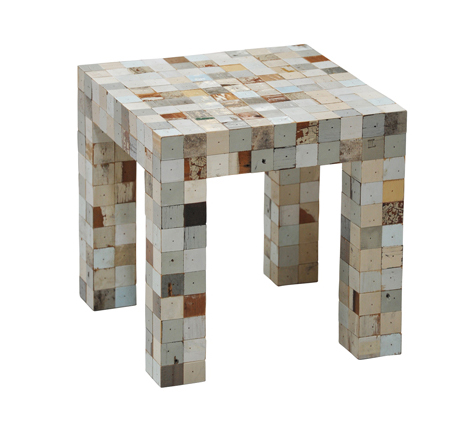
"We all of a sudden have a size which determines the design," explained the designer. "Everything is determined by this 40 by 40 size, so the thickness of the surface is either 40 or 80 and the leg can be either 40, 80 or 120 in width."
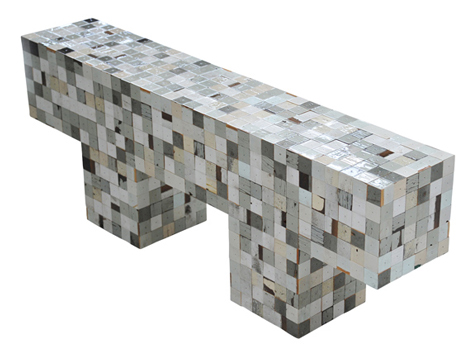
"A round table can't be round any more and it ends up looking a lot like pixels," he added. The pieces are made from a mixture of timbers and retain traces of different lacquers and paints on the surface, meaning no two pieces are ever identical. Each object will be numbered consecutively.
Piet Hein Eek began making the Waste furniture as a result of his frustration at having to throw away material because it was too expensive to use it for anything - not because the material itself was worthless but because the cost of labour should make the extra effort required to work with differently shaped and sized scraps of material uneconomical.
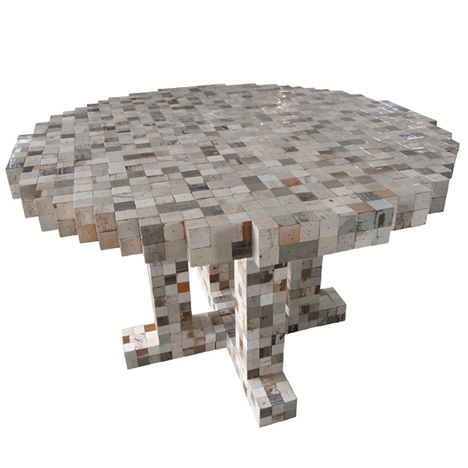
He decided to use the material anyway, pretending for a moment that labour was free and materials were worth their weight in gold, and found to his surprise that the products were commercially viable because customers were willing to pay for the extra effort involved.
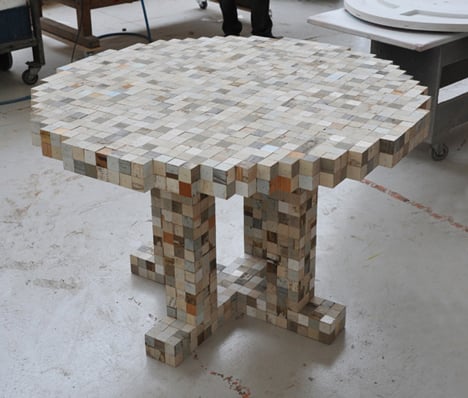
"As opposed to almost any other product, the waste products are made with the patience of a saint, quite a feat considering this is an age in which time is a rare commodity for pretty much everyone," he reflected.
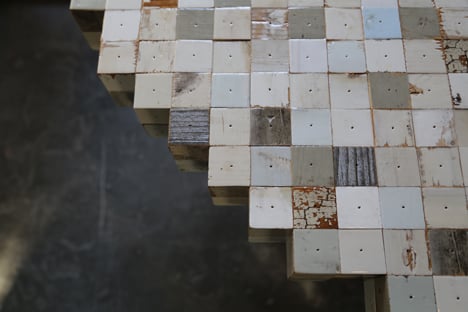
The original Waste series is made by gluing up scraps of wood in layers, carefully aligning all the irregular pieces and trimming them individually to fit where needed.
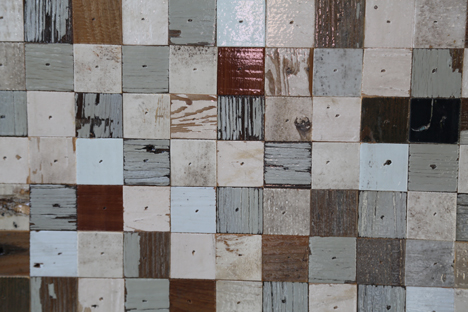
This process leaves behind waste material in smaller quantities and even more awkward shapes that are more difficult to use, though, so Piet Hein Eek reduced the labour required to convert them into the new collection by imposing the fixed shape and size of the squares and using them only as a skin rather than stacking them up to make a structure.
